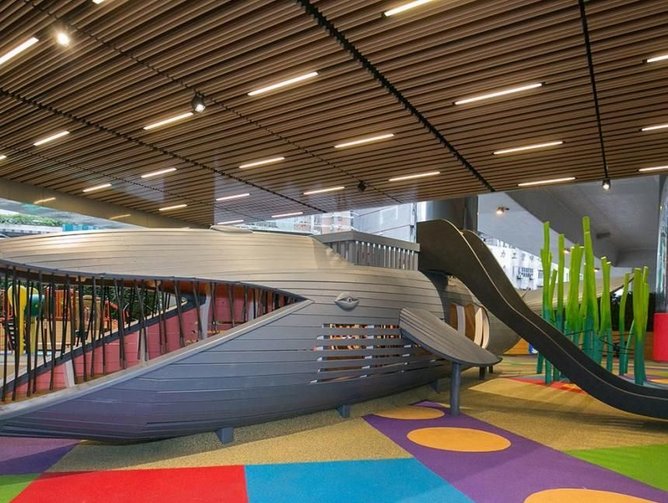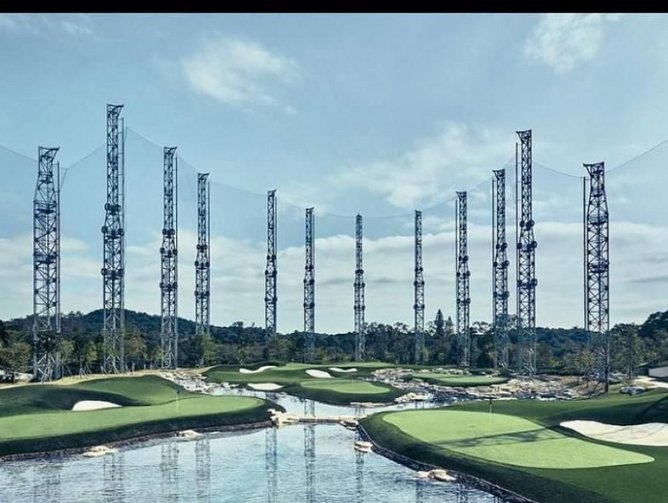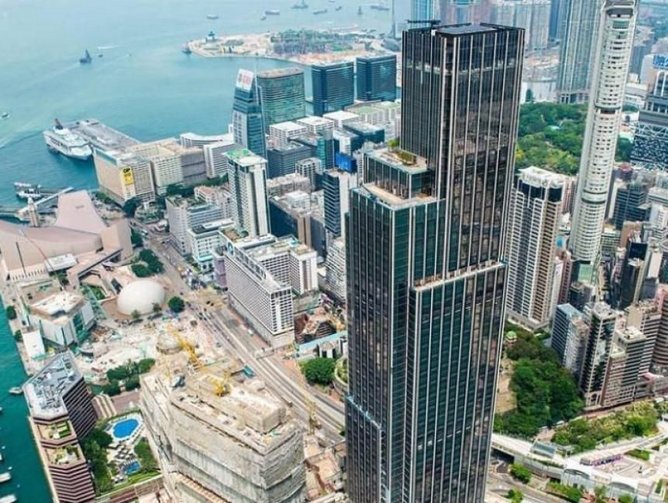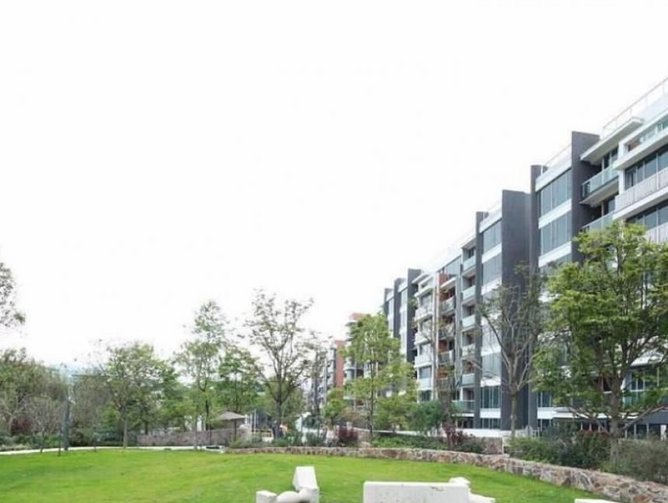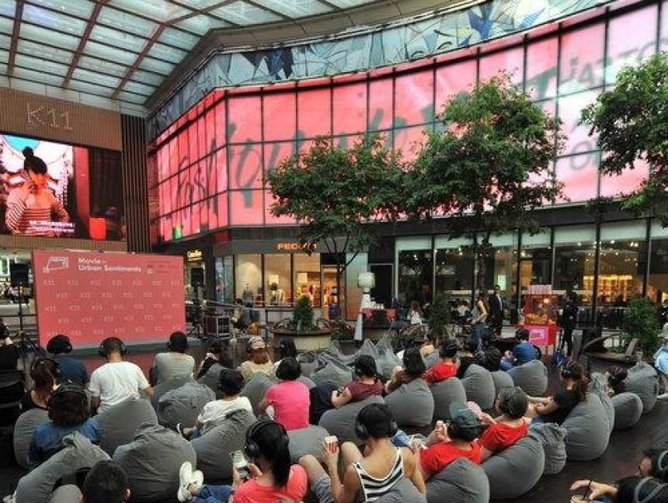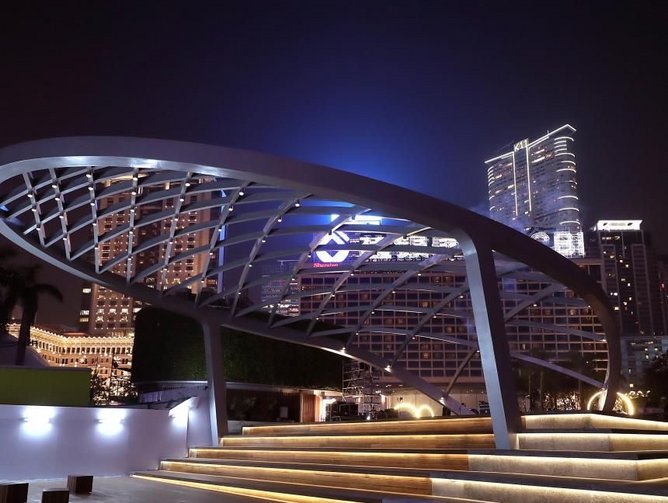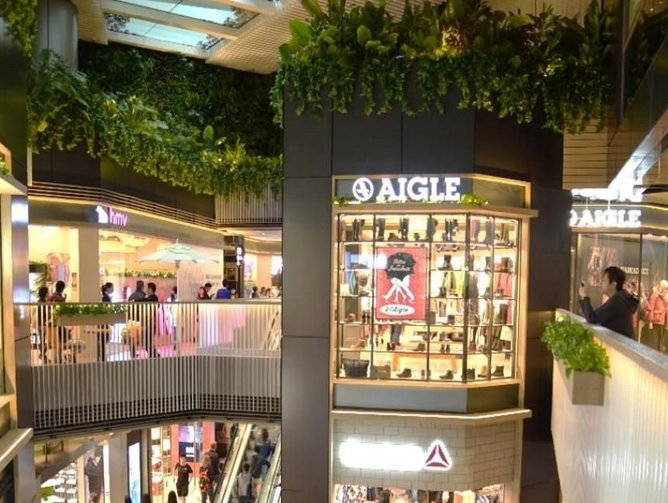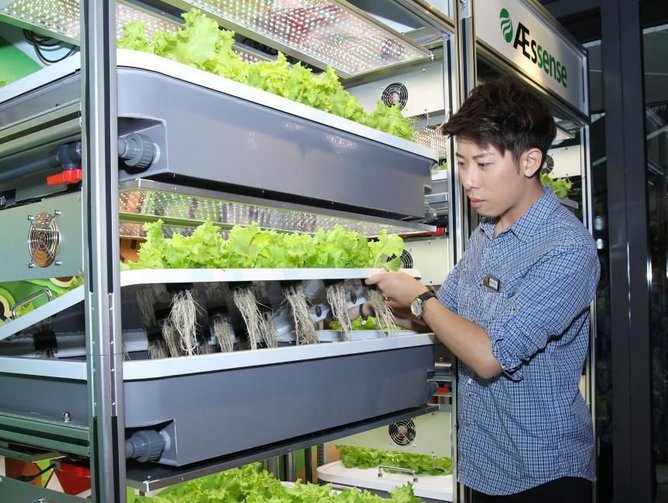New World Development’s Ellie Tang discusses The Artisanal Movement, their 2030 sustainability vision and the smart way to urbanise
With a sustainable future at its core, New World Development (NWD) is at the forefront of building communities in Asia. The corporation’s vision to build a better society through sustainable growth and a wellness focus is championed by The Artisanal Movement. As Ellie Tang, Head of Sustainability, explains: “This brand personality values heritage, nature and innovation at the same time. It is also about empowering each individual to craft something unique and make an impact. We also see the Group’s portfolio business as an ecosystem with opportunities to connect talents, products and services to create something new. This has been an opportunity to suggest a new approach to sustainability for the company.”
Sustainability is more than an attractive add-on as other companies may view it: it is integral to all aspects of the business. “With great support and guidance from our Executive Vice Chairman and General Manager Mr. Adrian Cheng, along with the leadership team, we have the opportunity to get involved in our property projects in Hong Kong and China from design all the way to customer experience,” Tang says. “We have referenced the United Nations Sustainable Development Goals, stakeholder views and our business priorities to set the 2030 vision for the entire group.”
The company’s New World Sustainability Vision 2030 focuses on four pillars: Green, Smart, Wellness and Caring. “We’re now setting policies and targets to drive those down to customer experience across our groups’ businesses. It’s an exciting journey,” Tang adds.
Building communities
With rapid urbanisation taking over both Hong Kong and mainland China, NWD not only produces top-of-the-range green buildings but keeps community in mind. “Urbanisation is integral to what we do – we’re building communities,” says Tang. “This isn’t just a slogan; it’s exactly what governments around Asia are promoting among building developers and what our dense cities need to be sustainable.”
“In the past, the focus was on building specification and energy efficiency, but now governments are looking into a wiser, more efficient way of planning and allocating resources. They want to see a holistic development blueprint with mixed-use facilities outlining how we will boost the local economy, improve connectivity through low-carbon transport, promote smart cities through technology adoption and include community-level green features.” That’s exactly what NWD offers, and it’s vital given around 70% of the company’s business is in mainland China.
In Hong Kong, where density and land scarcity is higher, NWD has innovated new project designs and features that bring its building users closer to nature, whether through a sky garden with renewable energy installation at SKYPARK, a residential re-development in Mongkok; or a family-friendly sculpture park at Mount Pavilia, a multi-tower residential project in the suburbs of Clearwater Bay. Both of these projects have been certified to the US LEED (Leadership in Energy and Environmental Design) Building Standard Gold level status.
From vision to action
NWD houses a diverse portfolio ranging across property development, investment and management; infrastructure and transportation; telecom; hospitality; healthcare; education and retail. This diverse focus enabled the launch of the first ever Art Mall in Hong Kong by the K11 ‘museum retail’ brand a decade ago. Since then, the brand has also added a workspace offering: K11 Atelier. The K11 brand integrates art into buildings, offering a unique user experience, and was pioneered by Adrian Cheng who is a third-generation member of NWD.
Tang explains that the Art Mall was a novel concept when it opened in 2009. “Mr. Cheng is an international art collector and a cultural entrepreneur. His vision has always been ahead of our time. The ‘museum retail’ idea of K11 has been very successful as seen in the increasing focus of our peers on art and culture in their property projects.”
The mall was launched at a time of increased consumer spending power in the region, as social media promoted unique online personas and shoppers craved a selfie-worthy experience. “Having that bespoke, exclusive cultural experience is a prominent trend for millennials. We keep pushing the K11 museum retail concept for that reason.”
“It’s not just about art and digital, but sustainable products at the core,” Tang adds. Often, small luxury or wellness companies have pop-up kiosks at K11 locations. “We’re seeing a rise in favour of wellness and green-themed products. In 2016, we launched K11 Natural, an experimental merchandise zone in our Hong Kong Art Mall, to cater to this growing customer demand.” A consumer market study shows a 40% increase in Chinese consumers’ preferences for anything branded with wellness or health between 2016 and 2017.”
Three years ago, NWD pioneered The Artisanal Movement, favouring the human side of large-scale development. “We want our employees and external stakeholders to think of themselves as artisans: they can create something memorable, unique and lasting,” Tang continues. “Every building we create has a unique design and we place ourselves at the cusp of heritage and modern. We aggressively adopt technologies while also preserving heritage and building human relationships in the communities we develop, with sustainability as the underlying spirit of everything we do.”
A lifestyle platform
NWD was the world’s first company to achieve the WELL Building Standard Pre-certificate on the King’s Road Commercial Re-development in Hong Kong. The same building has achieved a LEED BEAM Plus green building standards Platinum level at the pre-assessment stage. “This sets the tone for the future,” Tang says. “It’s not just ‘green’: we strive to build healthy buildings with the best air, natural light and water quality. Research shows healthy buildings result in a happier, healthier and more productive workforce. Caring about the individual is integral to The Artisanal Movement. We see buildings as a lifestyle platform: we’re creating a modern living culture with sustainability elements.”
The WELL standard, which advances health and wellbeing in buildings globally, ensures buildings are regularly re-certified. “We plan to build more certified green and healthy buildings,” says Tang, adding that while this comes at a cost, the rewards are exponential and investors are supportive. The company recently raised Hong Kong’s first ever Green Loan for the King’s Road project. “The wellness proposition gets people more excited than raising awareness on climate change, but the building design and operation requirements are generally similar.”
Wellness isn’t just promoted within NWD’s buildings. “We established the first sports and wellness academy: the Hong Kong Golf and Tennis Academy,” says Tang. In addition, the Group’s flagship community programme, New World Springboard, offers seven years of professional sports training, mentoring support, and volunteering opportunities to underprivileged students, with an aim to promote whole person development and improve social mobility. NWD also sponsors the annual Harbour Race, a traditional swim across the iconic Victoria Harbour in Hong Kong.
Virtually perfect
With preservation of heritage at the core, NWD uses cutting-edge technology to create green buildings for the smart cities of the future. BIM (building information modelling) software enables planners and designers to virtually plan buildings by creating 3D models which can be visualized. “On the computer simulation, you can make many adjustments and play around with designs before the actual building process,” says Tang.
“This reduces abortive works. It saves time; construction, environmental and health costs; occupational health and safety risks. Issues are flagged promptly and the software identifies what needs to be fixed and how long it will take.” BIM also helps facilitate overall building management post-construction.
NWD also launched the first virtual reality (VR) apartment viewing app in Hong Kong last year. While customers can still look at sales galleries and show flats, the app allows users to check the layout of an apartment remotely, and VR helps buyers design their own interior.
A sustainable future
How will NWD maintain its status as a community-centric living culture curator? “Quality speaks louder than anything else,” Tang states. “Everything we introduce from now on must live up to our vision. We will try to increase and strategise our communication both internally and externally.”
Adrian Cheng’s leadership of The Artisanal Movement is key to this internal development. “We offer extensive learning and development programmes for our employees and even their families. Across staff levels, there are opportunities to learn new skills, take ownership and collaborate with different departments and subsidiaries to tap into our internal strengths and create synergy,” says Tang. “We will continue to leverage our strengths as a group and put out quality products and services to achieve our goals as a culture curator.”
Externally, the company will continue to build healthy relationships. Suppliers, including BCG Group Ltd and Kohler Asia, have more than just a one-way relationship with NWD. “Kohler, our washroom facilities supplier, is involved in a lot of our green, sustainable and WELL building projects,” Tang explains. “Now we have a clear vision, apart from just buying products and services we do share our future direction with suppliers to see if they have any innovative proposals, like special features or new products.”
Innovation is also encouraged inside NWD, with an annual Incubation Circle competition which not only takes employees’ ideas on board, but offers them a platform and encourages them to take ownership. “Employees are encouraged to pitch projects based on specific categories ranging from profits, innovations, health and safety and environmental protection to new business. We can identify opportunities within our business and suggest how we would do things better.”
“As we go along and develop more concrete targets and specific actions,” concludes Tang, “we want people to see that sustainability runs through the veins of New World products and services.”
